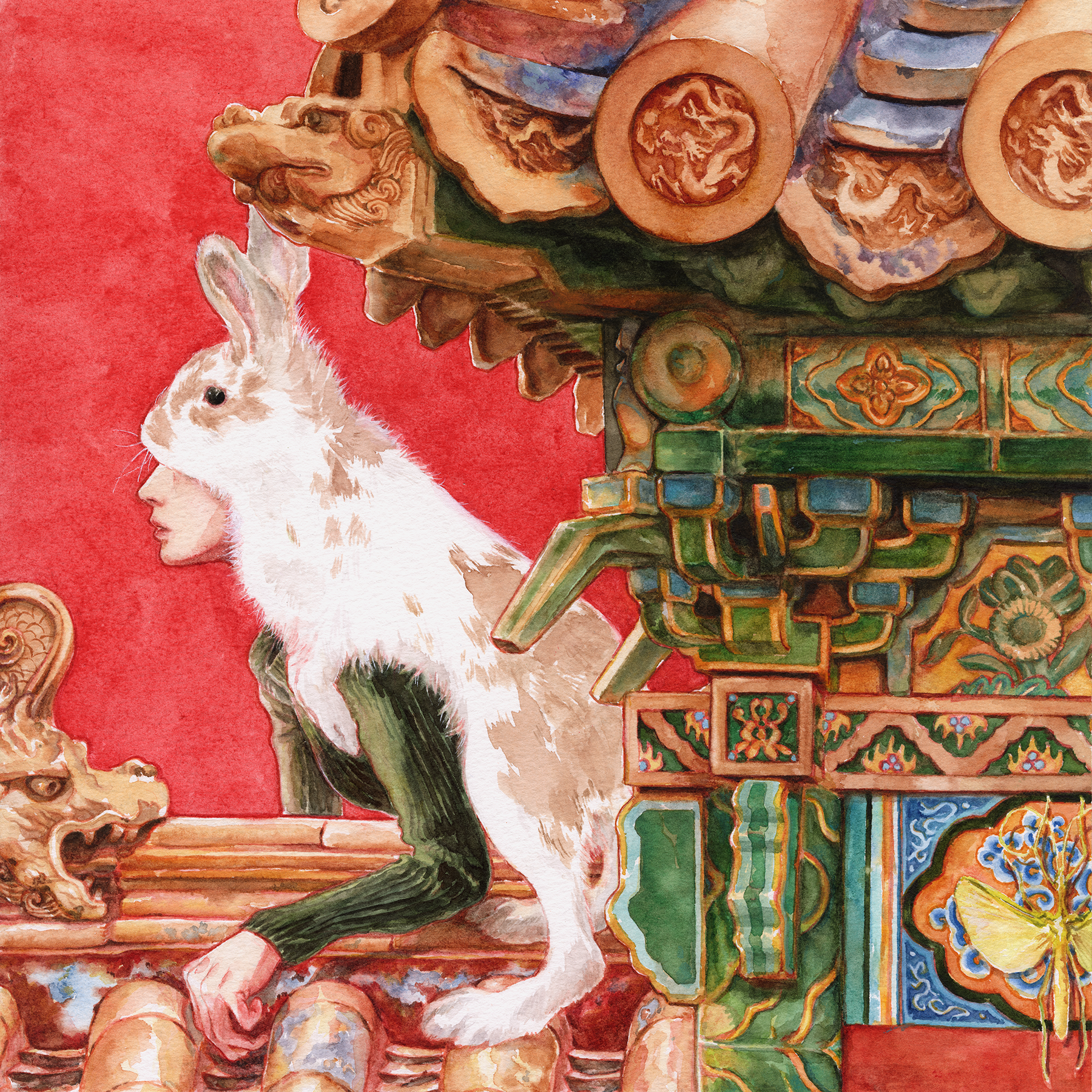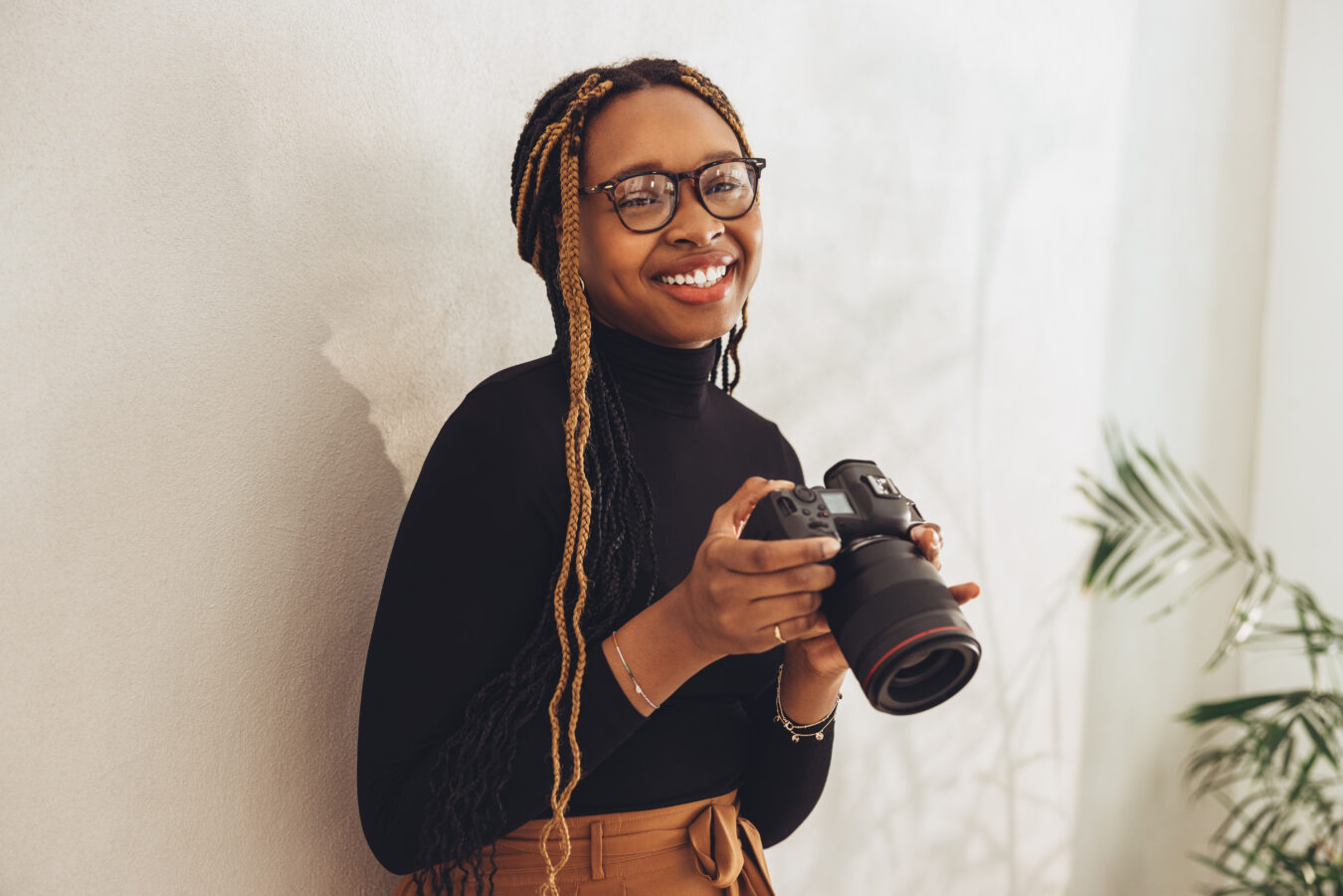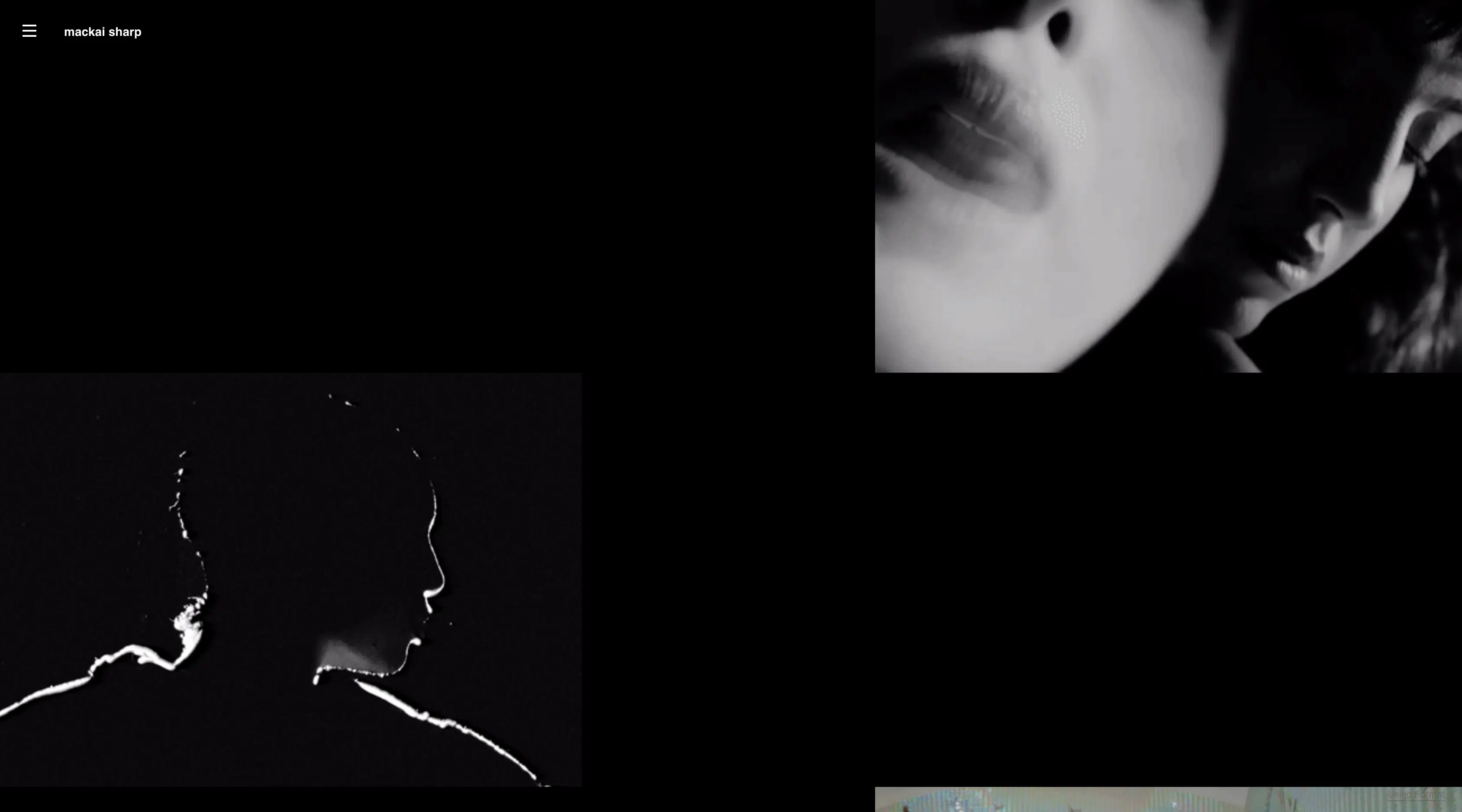Making art is, annoyingly, only a tiny part of being an artist. Networking to find clients, promoting your art and chasing down payments make up the everyday realities of being a creative professional.
If you’ve come to the realization that you can’t do it all on your own—or you feel like your art career development has hit a plateau and could use a little professional muscle–you might want to consider hiring an art agent.
If you’re seriously thinking about boosting your career as a fine artist or visual artist, art representation can help you take things to the next level. Finding someone experienced and knowledgeable to promote your work, help you find paying gigs, and put your online art portfolio in the right hands could significantly accelerate your career growth—and free up valuable time for you to actually do the thing you love!
What Does An Artist Representative Do?
According to NYC art representation gallery Agora, “an artist agent is any professional who works on behalf of an artist to represent, promote, and sell their work.”
People seek out artist representation for a wide variety of reasons, aside from simply wanting to find a larger audience for their work. Here’s a few of the other services an art agent could potentially provide:
- Negotiating for better contracts and increased pay
- Scouting out potential sponsors or buyers
- Supplying industry contacts
- Safeguarding your privacy by acting as a go-between between you and professional contacts
- Planning and executing marketing strategies
It’s worth thinking long and hard about your short-term and long-term goals for your art career and looking for an artist representative who’s equipped to help you make that happen, whether that’s selling individual works of art, scouting out commission opportunities, scoring licensing deals, getting featured in media, scheduling event appearances, or anything else on your wish list.

What Kinds Of Artist Representatives Are There?
It’s important to note that there isn’t just one kind of artist representative. Artists can recruit an art consultant, a private art dealer, an artist management agency, a commercial art gallery (which tend to be more hands-on with artists’ career trajectories—and more expensive–than other types of galleries, an interior designer, a publicist, or a marketing specialist in order to further their business interests.
Art agents, whether they’re self-employed, are part of an artistic agency, or are employed by a gallery, take a variety of approaches to representing their artists. Some are more geared toward handling everyday business demands like scheduling and invoices, while others more actively guide their clients’ careers over the long term.
It’s important to note that not all art agents are one-stop shops; depending on your needs and the services offered by your gallery or agent, you might find yourself eventually needing to hire additional staff to handle things like publicity or admin tasks.
Regulation Of Fine Art and Photography Agents
Art industry professionals, like mentor and coach Renee Phillips, point out that the world of fine art and photography agents is not licensed or regulated. That might make things more confusing from the point of view of an artist trying to decide who to recruit for help. The good news is, you can technically hire just about anyone you feel would be able to confidently represent you.
Do I Need An Art Agent?
If you haven’t built up any kind of profile as an artist on your own, you might not want to leap into seeking out artist representation. Overnight success stories do sometimes happen, but you want to make sure that you’re at a stage in your art career where you can make the most of that business relationship.
Keep in mind that a reputable fine art agent, agency or gallery won’t just take anyone under their wing: they want to make sure that your art is something they want to pour time, effort, and resources into promoting. Renee Phillips suggests that artists who are already selling their art regularly, and who have been able to increase their prices steadily for at least three years running, are in a good position to attract an artist representative.
Here are a few other questions you should ask yourself before looking into working with an art agent:
- Do you feel that your art career has hit a plateau after a period of commercial growth?
- Do you find that the business side of your career—chasing invoices, booking gigs, managing sales etc.—is dramatically eating into the time you’re spending on making art?
- Do you feel overwhelmed or out of your depth when negotiating for better pay or contract terms? This is where an experienced art agent could really provide some extra peace of mind.
- Do you feel that the additional cost of hiring artist representation would be genuinely worth it to you in the long run?
- Are you prepared to handle the risk inherent in hiring artist representation? Remember that hiring an agent or agency by no means guarantees you an elevated income.
Going through these questions carefully will help you determine if you’re at a stage in your career where pursuing art representation would be a net positive.
How Much Are Art Broker Commission Rates?
Pay for fine art agents and galleries is generally done in the form of commission, and the amount can vary based on your individual arrangement with your agent. But generally, hiring an artist representative isn’t cheap.isn’t cheap.
Entrepreneur.com suggests that art broker commission rates can equal roughly 10% to 20% of an art piece’s sale price (or the artist’s fee for a campaign, engagement, etc.).
Meanwhile, the standard commission for commercial gallery representation sits at about 50% per piece, though fees can be anywhere from 20% to 60%. (Reputable galleries will generally charge a commission on sales instead of asking for cash upfront. If a gallery is charging you a fee to exhibit, proceed with caution—or don’t proceed at all!)
Certain professionals, like publicists, might charge monthly retainer fees instead of sales-based commissions, or they may charge a fee based on a short-term project or campaign. These fees generally reach into the thousands of dollars.

What Should An Artist Representation Agreement Include?
When you find an artist representative you want to work with, it’s important to put together an agreement that you both sign so that you’re both on the same page. The art agent may already have one, so look over it to make sure you’re comfortable with it. Your artist agent contract should include:
- Exclusivity. Will your artist representative be the only person allowed to represent you? If so, this should be included.
- The duration of the contract, or the time at which it will be revisited.
- An outline of what the artist representative is expected to do.
- Decision making process. It’s important to outline how much authority the artist representative has to act on behalf of the artist.
- Art broker commission. This will depend on their exact role. For example, the typical art dealer commission would be lower than those for art gallery representation.
- How money and expenses will be handled.
- Going over all of these clauses with your new artist representative is a good way to avoid potential disagreements or misunderstandings in the future.
How Do I Get An Art Agent?
Competition is fierce in the art world—and that includes securing a fine art agent. Many art agents handpick their clients with great care based on their current bandwidth for taking on new clients, the quality of the artist’s work, the clarity of the client’s artistic voice, and the artist’s overall potential for commercial success.
If you’re angling for an art agent to sit up and take notice of your skills, here are a few things you can do:
- Take some extra steps to get your art out into the world. Galleries or art agents looking for artists often scout for new work through group shows or art residencies. If you’re enrolled in art school or working on a thesis, take advantage of shows or open house days offered by your school.
- If you’re cold-calling or emailing art agents or reps, check out their portfolio of artists beforehand to suss out whether your work is a fit with the type of art they represent. If you work in more traditional sculpture and they’re dealing mostly in street art, your efforts might be best spent elsewhere.
- On the other side of the coin: art agent Isabel Scharenberg says a good way to get attention from an art agent is to send something a little bit different from what they normally receive. (Either way, doing your research is absolutely essential!)
- Don’t be afraid to (politely) follow up on your application. Artist agencies receive tons of applications, and it’s possible your message may just be buried in someone’s inbox. Be sure to leave some time between your original message and the follow-up (nobody likes getting spammed).
Before you start reaching out to agents, make sure your online art portfolio is freshly updated and looking fabulous! Adding a link to a dynamite art portfolio, with all of your best work collected in one easy-to-find place, is a quick and simple way to make a big impact on time-strapped art agents scanning through their inbox for the next big thing.
Don’t have an online portfolio website yet? Thankfully, they’re super-simple to create. Choose a website builder that offers Instagram integration, so visitors can stay up-to-date on all your latest work. Another good feature to look for? A built-in online store; this way, you can sell your work with ease, right from your website.
Not sure where to start? Check out other artist portfolios for some inspiration; there are tons of cool art portfolios out there, whether your specialty is illustration, painting, collage, video, or ceramics.
How Do I Vet A Potential Art Agent?
When you’re still getting established as an artist, it might feel nerve-wracking to put your budding career in someone else’s hands. It’s entirely possible that you might run across an unscrupulous character looking to profit off your work—or, you might just work with someone who doesn’t end up being a great fit for you.
Before signing your life away, here’s how to make sure you’re choosing the right artist representation:
- Talk to your fellow artists. If you’re lucky, a contact might be able to refer you to someone they’ve had a positive experience with. If not, you’ll also learn from their experiences seeking out or working with art agents, as well as any potential perks and pitfalls.
- Try a shorter contract when you’re starting out to assess whether or not this artist agency or agent will be a fit.
- Make sure to be as transparent as possible with your potential art agent. The more they know about your goals and artistic process, the better they’ll be able to assess whether they’re equipped to help you, and the more genuinely and authentically they can represent you to potential buyers or clients.
- Some may ask for commission on your sales regardless of their involvement in that sale, or they might block you from selling artwork through other avenues. It’s crucial that you make sure you’re okay with all of your agent’s terms before signing on the dotted line.
When In Doubt…
Remember that, just as you’re looking for an art agent or artist management agency that’s the perfect fit for you and your work, the agent is looking for artists that mesh well with their goals and practices.
“There is always a direct negotiation process with the artist; you both decide if you can work together,” London-based agent Pippa Gaber said in an interview with The Guardian. “Each contract becomes slightly different because each artist has different needs—some will fit within your (framework) and some will not.”
At the end of the day, the goal is to find someone that understands that both of you are in this together. If you’re patient and diligent in your search for trustworthy artist representation, and if you both carefully nurture the agent/artist relationship, you can form a mutually beneficial business relationship that, with plenty of hard work, will help you both climb the ladder of the art world.
Good luck with your search!
Want some more tips on building your art career?
The Artists Making A Living (Or Trying To) With Patreon
Here Are The Top 9 Cities for Artists To Live In
The Best Art Contests And Art Competitions For 2018/2019












